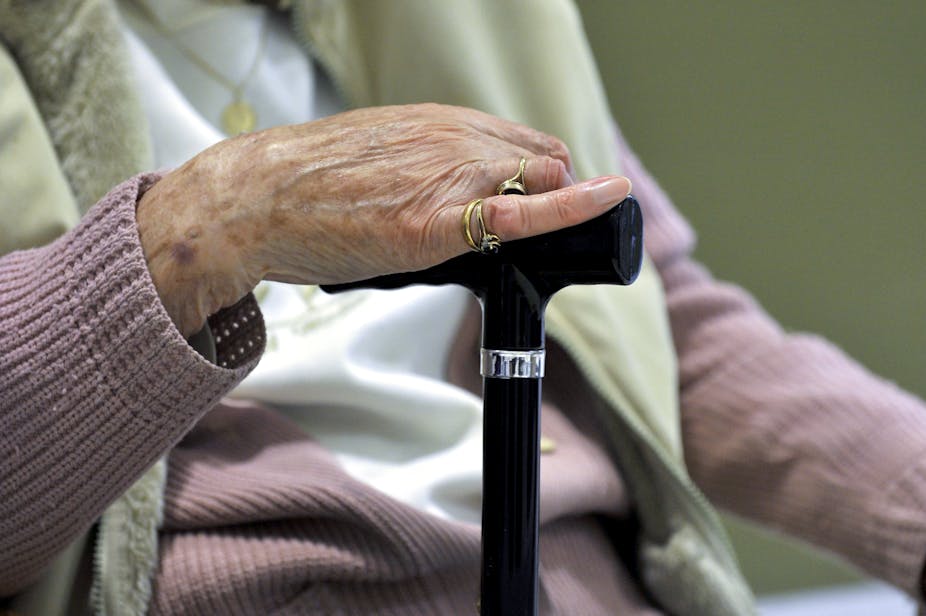A recent survey found 73% of aged care workers in Australia did dirty work, coming into contact with bodily products. These products that are normal – we all poo and bleed – but taboos surrounding dirty work means it rarely gets talked about. And ultimately, this may threaten the quality of care provided to older Australians.
Our research, which surveyed 3,945 female aged care workers aged 45 and over, addresses the invisibility of important aspects of aged care work.
In the interviews we conducted, several care workers explained that they could not talk about the dirty parts of their work in the wider community.
One care worker told us when she tried to talk about it with others she got an “eek” response and could go no further. Another felt unable to tell her husband what she did at work: “I don’t talk about it… if my husband knew what I did he’d friggin whoa, he has no idea.”
One care worker expressed surprise at the type of reaction she got when she tried to talk with her friends about her work. She said a typical comment was “Oh, god, do you do that? Oh how can you, do you have to?” But to her it was something that “had to be done”, and she could not understand the revulsion others seemed to attach to washing people.
We need to think about the reasons for, and consequences of, the silences around dirty work in aged care.
The “ick” factor
Daniel Kahneman, a Nobel laureate in economics, suggests one possible reason: we tend to shut down when confronted with prospects that we don’t intuitively like. He demonstrated this in a laboratory setting, where “within fractions of seconds” people will reject prospects with negative labels – like vomit – without paying any attention to the details.
And women have historically performed this work in the home, away from the public view. They have been expected to undertake these tasks for their family members out of love and obligation, which has created a cultural legacy of judging the work as “natural” for women.
As a result, there are few formal structures for recognising (and rewarding) skill and effort associated with care work, even though in modern circumstances more of the tasks are being performed out of the home environment.
But perhaps it is just convenient for us not to talk about dirty work in aged care. Jobs that are recognised to be disagreeable (such as on mining sites) often attract higher rates of pay.
But almost 80% of the women who participated in our study were earning less than A$25 per hour. More than 50% were earning under A$20 per hour. These wages are lower than those attached to many unskilled and low skilled jobs in other parts of the labour market. Clearly they do not compensate for the disagreeable aspects of this work. Perhaps the reason is that we are failing to acknowledge the dirty work?
Wages in the toilet
If we don’t talk about dirty work – if we don’t acknowledge that it can be disagreeable (and therefore that it should be compensated for) – then we continue in the blind hope that carers’ sense of love and obligation will motivate them to do the work.
One of the participants in the study expressed her sense of obligation: “You couldn’t leave them like that.” But another expressed her frustration with people doing the “Florence Nightingale trick”, where they say “she’s here because she loves it”. “It’s bull, bullshit,” she said.
She also questioned whether the community could continue to rely on these non-monetary motivations, and suggested that younger women were less willing to work for love, not money.
Other data that we’ve collected confirm this risk, showing that employment departure rates are highest among aged care workers under 25 and relatively low among those in their 60s.
We need to talk about dirty work in aged care to ensure it is properly reflected in funding for the sector, so that organisations can properly compensate workers who undertake the work, so that aged care workers feel able to discuss their work and take pride in its importance, and so that it is undertaken in ways that preserves the dignity of the older people it most directly affects.

